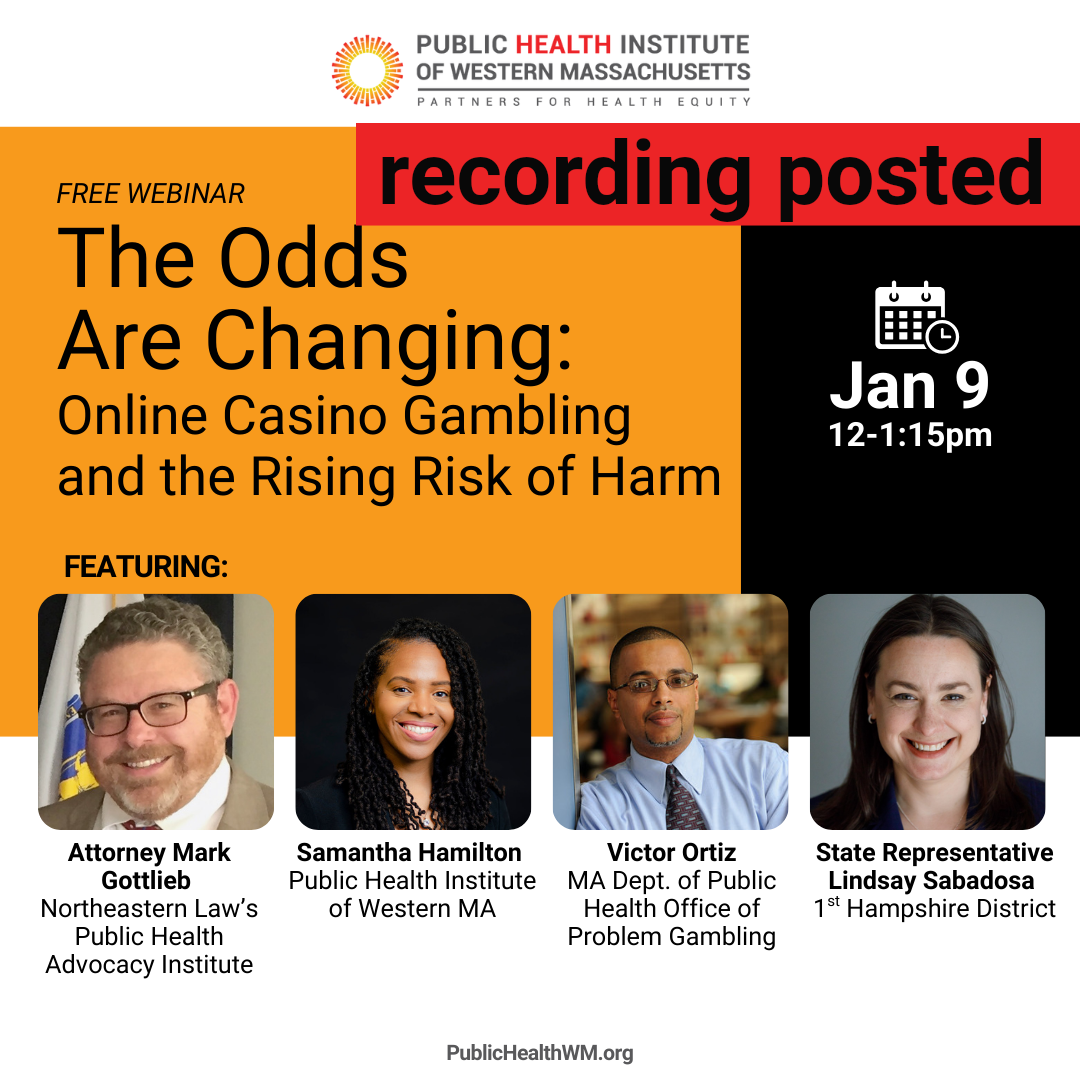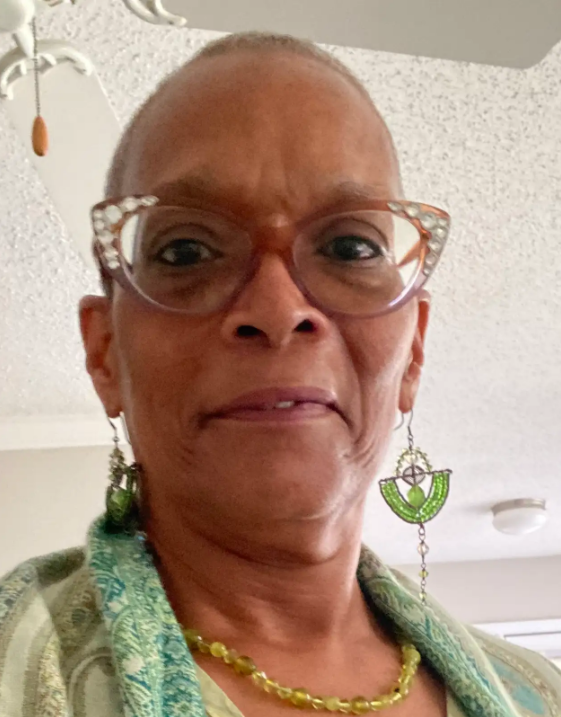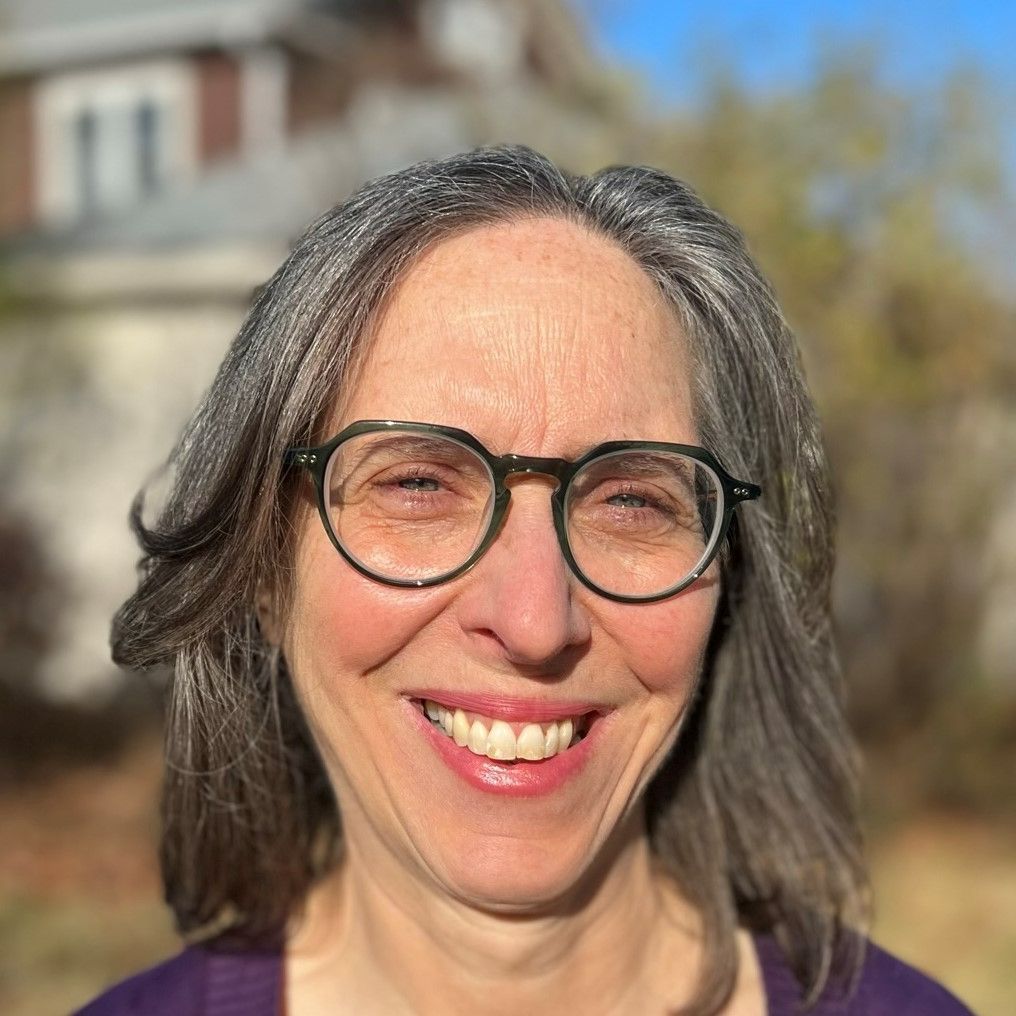
PARTNERS FOR HEALTH EQUITY
Our vision is for all people within our region to have access to what they need to lead healthy lives.
What We Do
Spotlight on Coalition Building Initiatives.

413Cares.org is an online community resource database for western Massachusetts. It's empowering people to find and connect to local services to get the help they need. It's free and easy to use.
News

Online sports betting became legal in Massachusetts in 2022, and now the Legislature is considering a bill (H4431) to legalize internet casino gambling—also known as “iGambling” or “iGaming.” What would more options for 24/7 gambling mean to the public health of our communities? Watch the recording from the 1/9/26 webinar. Speakers included Mark Gottlieb of Northeastern Law’s Public Health Advocacy Institute, Samantha Hamilton of Public Health Institute of Western MA, Victor Ortiz from the MA Dept. of Public Health Office of Problem Gambling, and State Representative Lindsay Sabadosa. The discussion was moderated by Jessica Collins of the Public Health Institute of Western Massachusetts. Webinar Materials recording slides Video shared by Mark Gottlieb- Online Casino Gambling Ad Take Action This month, PLEASE email the MA Legislature’s Committee on Economic Development & Emerging Technologies and ask them to SUPPORT Sen. Keenan’s bill (S.302) to add regulations on sports-betting, AND, OPPOSE H.4431, a bill that would legalize online casino gambling. Instructions & Email Template Links Shared during webinar Read speaker bios Understanding Youth Gambling Behavior in Springfield: Findings from the Springfield Youth Health Survey PHIWM Written Testimony An Act relative to internet gaming An Act addressing economic, health and social harms caused by sports betting The MA Problem Gambling Helpline , 800-327-5050
Putting Resources into Practice

Beyonca Twiggs is a Project Coordinator at the Public Health Institute of Western Massachusetts. Read her reflection below about engaging in equity work and showing up even when it is hard. Showing Up When It's Hard There are days when the work feels heavy. Not just the tasks or the meetings, but the weight of what we’re trying to change. Systems that were never built for everyone. Patterns that repeat across generations. Stories that aren’t told, because they’ve been ignored for so long. On those days, I remind myself why I’m here. I didn’t get into this work because I had all the answers. I got into it because I kept seeing the same harm, the same gaps, the same silence, especially around race and health. And I wanted to be part of interrupting that silence. I’ve learned that equity work isn’t about checking boxes or writing the right statement. It’s about being willing to stay in the room when things are uncomfortable. It’s about asking, “Who’s not here?” and meaning it. It’s about choosing to be accountable, not just when someone is watching, but especially when no one is. It means listening even when the truth stings. It means making space for stories that challenge how we see the world and how we see ourselves. Sometimes, it’s slow. Sometimes, it’s painful. But every time we choose to show up differently— more aware, more honest, more intentional—something shifts. And over time, those shifts start to matter. I’ve also learned that change doesn’t always look like a policy passed or a report released. Sometimes, it looks like someone feeling seen for the first time. Sometimes, it’s a door that wasn’t open before. Sometimes, it’s just staying committed when it would be easier to walk away. I am doing this work because I believe in the possibility of something better, and not just in theory, but in practice. In neighborhoods. In classrooms. In clinics. In the everyday places where people deserve to be safe, to be well, and to be valued. This isn’t just professional for me. It’s personal. Because the stakes are real. Because our communities deserve more than survival. They deserve care. They deserve joy. They deserve justice. So no, I don’t have all the answers. But I’m here. I’m learning. I’m listening. And I’m staying. Because the work is worth it. And so are the people we do it for. If you’re looking for ways to deepen your understanding, continue learning, or spend more time with the stories and voices that shape this work, I encourage you to explore the Race and Health Equity Resource Guide . It offers tools, reflections, and local resources to support ongoing growth.

Wanda Givens is a member of the leadership team for the Women of Color Health Equity Collective (WOCHEC). WOCHEC offers training and consulting services to address issues of white supremacy, health inequity, and more. As part of her work at WOCHEC, Wanda facilitates a training about cultural humility. "What I love most about facilitating Cultural Humility is not what people learn about each other, but what they learn about themselves. The more we know about how we get to be who we are, the more we can understand and relate to someone else’s journey. There’s nothing more rewarding than seeing someone come to the realization that they are more like others in the room than they are different. Our paths may take different roads, but essentially, we are all on the same journey." Did you know the Race and Health Equity Resource Guide includes a listing of organizations like WOCHEC who can help guide your organization on its anti-racism journey and more!


